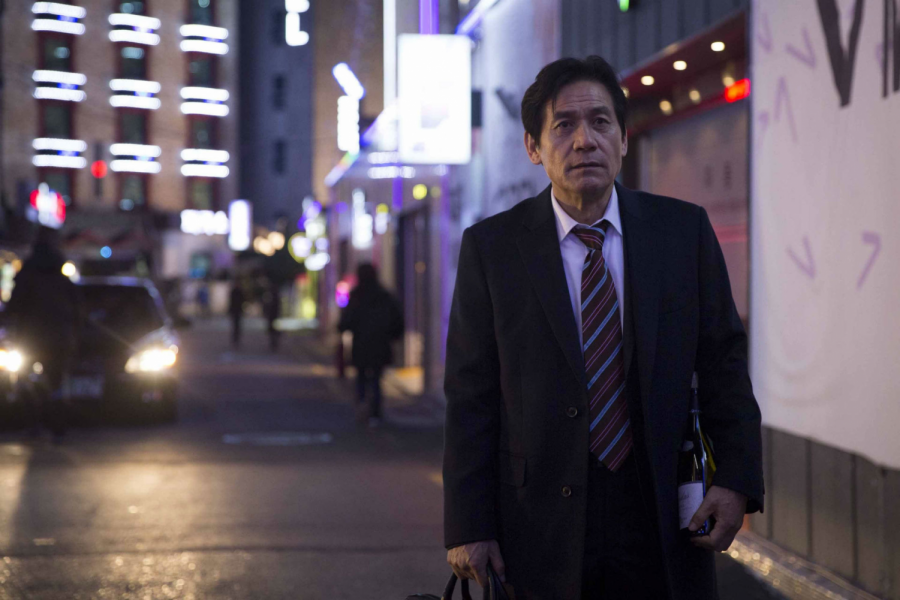Theme of the Month: Grief
December 5, 2018
Theme of the Month is an article series designed to investigate the best examples of film, television, and writing that fall under a certain category. These works feature characters that have lost someone close to them, and how those deaths have altered the way they perceive life.
“A Single Man”
What do you get if you cross the art of filmmaking with a fashion designer? One of the best movies of 2009, surprisingly.
“A Single Man,” the feature debut of former Gucci creative director Tom Ford, details a day in the life of college professor George Falconer as he makes his final arrangements before attempting to commit suicide several months after the death of his partner, Jim. And yet, for as much as George wishes to die, life keeps finding a way to creep doubt into his mind. A dinner with a childhood friend, a chance encounter with a prostitute, an interaction with a student: all of these will affect him in ways never thought possible and drive the film ever closer to a painfully ironic conclusion.
Colin Firth is a revelation as George, or “a man who prepares a face to meet the faces that he meets,” as Roger Ebert puts it. It’s not hard to understand why Firth brought home an Oscar nomination for best actor; inside of his eyes lingers a deep but suppressed sadness, and it is an absolute marvel to watch his performance play across the screen. Ford’s direction is similarly meaningful: George’s observations of the beauty surrounding him are rendered in beautiful detail, such as the drops of dew on a rose or cigarette smoke lingering in the air.
Aided by strong direction, performances, and a beautiful classical score by Abel Korzeniowski, “A Single Man” manages to sidestep any potential self-indulgence and instead presents an appropriately smothering portrayal of grief.
“Revivre”
A man, known only as “Mr. Oh,” is the marketing executive of a popular cosmetics company. Outwardly, he lives a solid and enviable life; on the inside, however, is a broken person torn apart by desire. When a beautiful co-worker catches his attention, Oh struggles to choice whether to give into temptation or stay faithful to his ailing wife.
“Revivre” is director Im Kwon-taek’s 102nd film, and it shows. The movie’s camera never falters even on some of the more upsetting scenes, and Kwon-taek leads his actors on the best possible paths without tipping over into melodramatic waters.
Unfortunately, many of the cultural references and meditations on Korean society are lost on my western ears. The film’s original title, “Hwajang,” literally translates to “Cremation” or “Powder,” which bitterly suggests a correlation between beauty products and death; this is just one of the examples of something lost in translation. This isn’t something I can fault “Revivre” for, though, and the movie works regardless.
Although the cultural divide is clear, “Revivre” still manages to be a powerful and devastating story of a character — no, a person — whose consciousness has been wracked with guilt.
“Penance”
Directed by Japanese horror maestro Kiyoshi Kurosawa, “Penance” is a five-part miniseries whose plot stems from one tragic event 15 years ago: the murder of elementary student Emili.
The four witnesses in the case, who all happened to be friends of the victim at the time, can’t remember the perpetrator’s face and the case goes cold. Emili’s mother, Asako, sick of waiting in vain for the murderer to be caught, punishes the girls by placing a “penance” on each of them. Now, in the present, Asako has come to collect her payment, and none of them are quite prepared for what comes next.
I called Kurosawa a “maestro of horror” earlier, but that isn’t exactly fair. While it is true that he rose to fame with heavily psychological fare such as “Pulse” and “Cure,” Kurosawa has worked on more restrained work before, most notably the quiet family drama “Tokyo Sonata.”
With that in mind, “Penance” can still be considered a horror series, or at the very least a psychological drama. Controlling husbands, murderous women, and insane attackers are par for the course in the show, and that’s not even counting the main mystery.
But for all of its unsettling, nervy stories, “Penance” is above all else a study of tragedy and the consequences that result out from one seemingly isolated event. By the end, all of the girls will have paid their dues, and the series leaves us in the same emotional state as them: despair.



